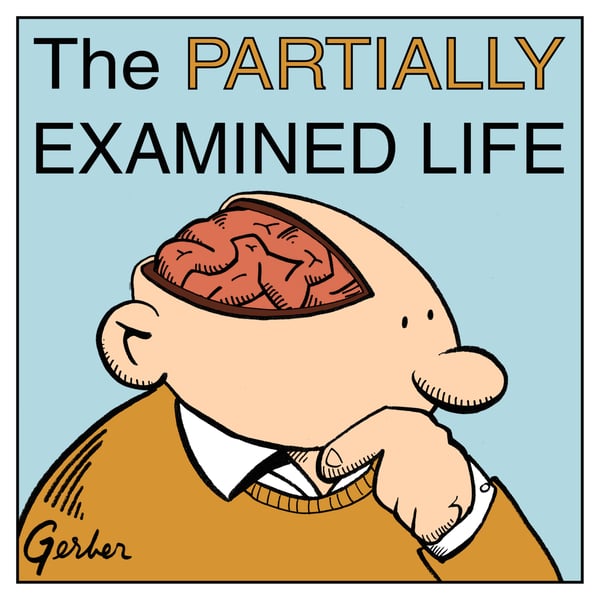Ep. 368: Hume on Reason in Ethics (Part Two)
The Partially Examined Life Philosophy Podcast
Mark Linsenmayer
4.6 • 2.3K Ratings
🗓️ 9 June 2025
⏱️ 49 minutes
🧾️ Download transcript
Summary
We conclude our discussion of A Treatise of Human Nature (1739): Book III, "Of Morals," plus a bit more discussion of An Enquiry Concerning the Principles of Morals (1751).
How do moral sentiments fit into Hume's overall philosophy of mind? Is Hume a relativist? We talk about sociopaths, animals, incest, consent, ethics vs. beauty, moral luck, and more.
Get more at partiallyexaminedlife.com. Visit partiallyexaminedlife.com/support to get ad-free episodes and tons of bonus discussion.
Transcript
Click on a timestamp to play from that location
| 0:00.0 | Hey, this is the partially examined life, episode 368, part two. |
| 0:11.5 | We've been discussing portions of two different treatises on ethics by David Hume, a treatise on human nature from 1739, his very early thought, and finishing up on an |
| 0:21.6 | inquiry concerning the principles of morals from 1751. We've talked through most of the ideas |
| 0:27.4 | in these sections that we picked out for today, but let's really zoom in on the book three |
| 0:33.5 | of morals of virtue and vice in general from the treatise to mop up anything else we want to say. |
| 0:40.9 | Yeah, he starts off by reminding us that moral sentiments are perceptions, which he divides into |
| 0:47.3 | ideas and impressions. So perceptions, right, a sensory quality like red is a perception. It's an impression in particular. |
| 0:56.6 | And a passion like loving or hating, well, certain passions can be impressions. I think there's |
| 1:01.9 | more complex loving and hating actually turn out to be more complicated types of passions. |
| 1:06.6 | So I won't necessarily call them impressions. I think maybe he does think that they are impressions, that even if, you know, we like to say, |
| 1:14.5 | well, remember our discussion of pride and humility. I think he thinks love and hate are just |
| 1:19.0 | as complicated as pride and humility, and they have this double relationship. |
| 1:22.7 | Sure, that they're referring. Yeah, right. It's the same sort of have, in saying that it's a |
| 1:27.4 | secondary quality, |
| 1:28.4 | it seems to be an impression of the object. I see a crime happening in front of me and it seems like |
| 1:33.9 | this is a reaction to the crime. That's what my impression is, is of crime. But really, |
| 1:39.9 | it's an impression if I really pay attention to it of what's going on in me. It's referring. |
| 1:44.8 | I mean, to understand the meaning of it, I have to refer to that thing outside. |
| 1:48.4 | But to really see what I am focusing on, it is my own reaction. |
| 1:52.7 | What I'm saying is, yeah, the impression is the sentiment or the perception is the sentiment. |
| 1:57.7 | And if I have a sentiment, sentiments can be quite nuanced. |
| 2:03.6 | So if I'm feeling proud or feeling hate or any other sort of sentiment, I think one might argue that that's complicated |
... |
Please login to see the full transcript.
Disclaimer: The podcast and artwork embedded on this page are from Mark Linsenmayer, and are the property of its owner and not affiliated with or endorsed by Tapesearch.
Generated transcripts are the property of Mark Linsenmayer and are distributed freely under the Fair Use doctrine. Transcripts generated by Tapesearch are not guaranteed to be accurate.
Copyright © Tapesearch 2025.

